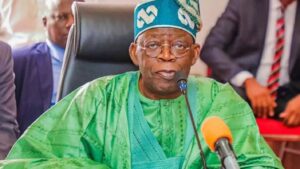IPPIS exemption for tertiary Institutions raises controversy as UNILAG VC, NAPTAN, others commends FG
The announcement by the Federal Government to exempt universities, polytechnics, and colleges of education from the Integrated Payroll and Personnel Information System (IPPIS) platform has sparked controversy.
The Federal Government made the announcement after a Federal Executive Council (FEC) meeting on Wednesday, arguing that IPPIS does not allow for the autonomy of tertiary institutions.
This development is one of the many demands the Academic Staff Union of Universities (ASUU) has been making since 2009, when it signed an agreement with the Federal Government.
Prof. Folasade Ogunsola, Vice Chancellor, University of Lagos, in an interview described the move as a relief and a step in the right direction.
“I must say I am ecstatic, joyous, I am indeed very happy and I must commend President Bola Tinubu for taking this huge step. We appreciate him a lot. It gladdens our hearts a lot.
“This move is an affirmation of the autonomy of universities. Universities indeed should not be seen to operate like the normal civil service as it stifles their operations and removes academic freedom.
”With the former system in place, we lost staff and made it difficult recruiting. With this new development in place, things will look a lot better, as we no longer have to also go for waivers. So, we thank the president very much.
“We also urge him to look at other policies that run counter to university services and do the needful, where such policies are overriding the act setting them up,” she said.
Prof. Biodun Ogunyemi, immediate past President, ASUU, also lauded the move, describing it as a welcome development.
According to him, more of such developments will accelerate the much needed turnaround in the tertiary education system in the country.
”This is the proper and necessary thing to do, in a bid to actualise the autonomy of universities. This is why we have Governing Councils in place in each university. These councils are our employers. They determine what to do.
“Having said this, I will say that what the government has just done is a means to an end and not an end to itself. There is the need to empower councils of universities, in a bid to actualise this autonomy.
“Government must strive to make funds readily available to them and meet other demands of universities that are outstanding, so that the purpose of this long awaited autonomy will be achieved,” the unionist told journalists.
Dr Taiwo Ipaye, a former Registrar, University of Lagos, said she felt a sense of relief that the much agitated issue of university autonomy had been finally respected.
According to her, this way, issues of corruption will be checked, and it will enhance accountability.
“We are indeed happy with this development and must commend the president for taking this bold step.
“Keeping the university workers under the normal civil service mode of operations was not doing the government itself any good, as it encouraged corruption.
“These universities operate differently. It is only in Nigeria that salaries of staff in universities are static. It is not motivating anyone. People will always give in their best because they have been taken good care of, and hence will be held accountable.
“Again, the issue of funding education should be taken seriously. We must return to the grant system, if indeed we want to compete favourably with the system of education in other climes.
“Grants should be given to students so that they will not have cause to hang around the university for seven years, for a four years programme, just like university workers will earn decent pay for the efforts they put in. That is the only way people can be held accountable,” Ipaye stated.
The Provost, Federal College of Education (Technical) Akoka, Dr Wahab Afeez, said that the step would accelerate development in the sector.
According to him, it will create an enabling environment for Governing Councils of institutions of higher learning to source for best brains locally and in the diaspora, to make a significant impact on teaching and learning outcomes.
“It is a step in the right direction, as it will attract more growth in the intellectual and research areas in our various institutions.
“It will also provide windows to source for good hands that will take learning outcomes to the much desired height.
“Also, in the area of staff recruitment, institutions will be able to determine employment requirements, pending the available vacancies and there wouldn’t be an issue of no or delayed salaries,” the provost said.
Deputy National President, National Parent Teacher Association of Nigeria (NAPTAN), Chief Adeolu Ogunbanjo, described the development as a good one.
He expressed hope that the government would continue to give subventions to the institutions.
“I want to believe and hope that the government will continue to fund our tertiary institutions, by way of subventions to enable them carry out their research mandate, so that this gesture will not look like a Greek gift.
“Any institution that is not proactive in research is not likely to grow, because it helps to discover new ideas, innovation and developments, therefore, the government must take cognisance of such support,” he said.
Senate President of the National Association of Nigerian Students (NANS), Mr Akinteye Afeez, on his part, also lauded the Federal Government on the gesture.
He said that it would go a long way in stabilising the system.
“We also want to thank the Federal Government for taking this decision. The non implementation of this aspect of the demands of ASUU has contributed largely to the incessant strikes witnessed over time in the system.
“We are also calling on the university management not to abuse this opportunity, by ensuring that they carry out their activities in all fairness to humanity,” he said.




